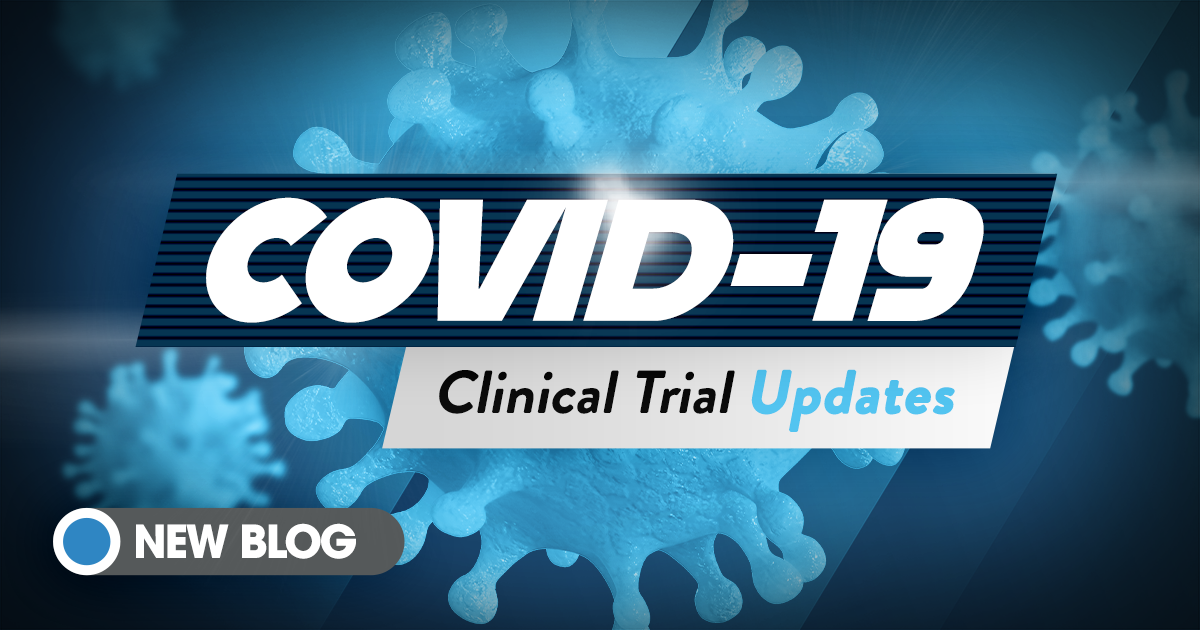COVID-19 remains on the tip of everyone’s tongue, and with each state varying it’s reopening stances and policies, many wonder about vaccines and treatment options. But vaccines and treatments don’t just “appear” one day and are available for everyone. They go through a clinical trial process to determine a vaccine or treatment’s safety and effectiveness. However, the urgency for these treatments are being answered by the FDA, and the early results are promising.
COVID-19 Trial Phase Update
 The trial process is highly regulated by the FDA and has four main phases an investigational therapy must go through. Clinical trials not only investigate treatments, but they look into behavioral impacts too. The trial process can take years, and vaccines, on average, take more than 5. The FDA has fast-tracked COVID-19 therapies to bring available options to the public as soon as safely possible. However, treatment option progression is moving along faster than vaccines are. Most COVID-19 trials are still in the early phases (I & II), with Gilead Bioscience in phase III with their remdesivir drug as of late February.
The trial process is highly regulated by the FDA and has four main phases an investigational therapy must go through. Clinical trials not only investigate treatments, but they look into behavioral impacts too. The trial process can take years, and vaccines, on average, take more than 5. The FDA has fast-tracked COVID-19 therapies to bring available options to the public as soon as safely possible. However, treatment option progression is moving along faster than vaccines are. Most COVID-19 trials are still in the early phases (I & II), with Gilead Bioscience in phase III with their remdesivir drug as of late February.
Some of the other common treatments being looked into are sarilumab and bevacizumab. These are all treatments currently on the market previously FDA approved to treat other conditions. They are now being used to treat different severity levels of COVID-19 in clinical trials.
Initial Results
Progress is ever-evolving with literally 1,114 COVID-19 studies in the ClinicalTrials.gov website database. Twenty-one ongoing trials for treating coronavirus have reported results, and 16 of them showed positive response data. Moderna’s COVID-19 vaccine early data showed positive results, with over 100 other trials for vaccines underway as well. Estimates put a vaccine being delivered between January to June of next year. Some treatment trials are scheduled to wrap up in August of this year, so approval and public availability will be much sooner for those.
Five ongoing trials did have negative results. The most notable being hydroxychloroquine, which failed efficacy and side effect targets. Again, these are best estimates as data starts coming in from the different trials. This can vary as diverse populations are added to the trial process.
Clinical Trials Need Volunteers

Volunteers participating in clinical trials make new vaccines and treatments possible. It may not be the right choice for everyone, but for everyone who can, the need has never been greater. To be matched with a COVID-19 study in your area, visit us here.
References:
https://www.biospace.com/article/16-of-21-covid-19-clinical-trials-show-positive-early-results/
https://www.cnn.com/2020/05/18/health/coronavirus-vaccine-moderna-early-results/index.html

